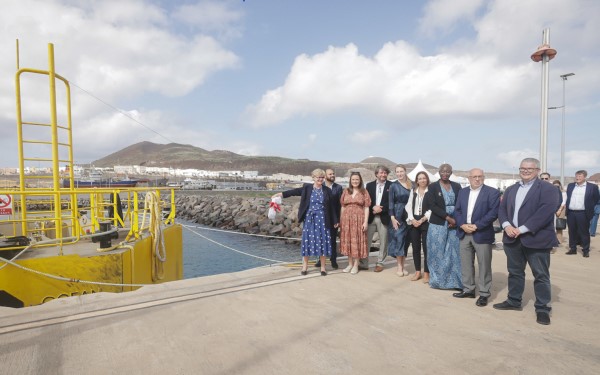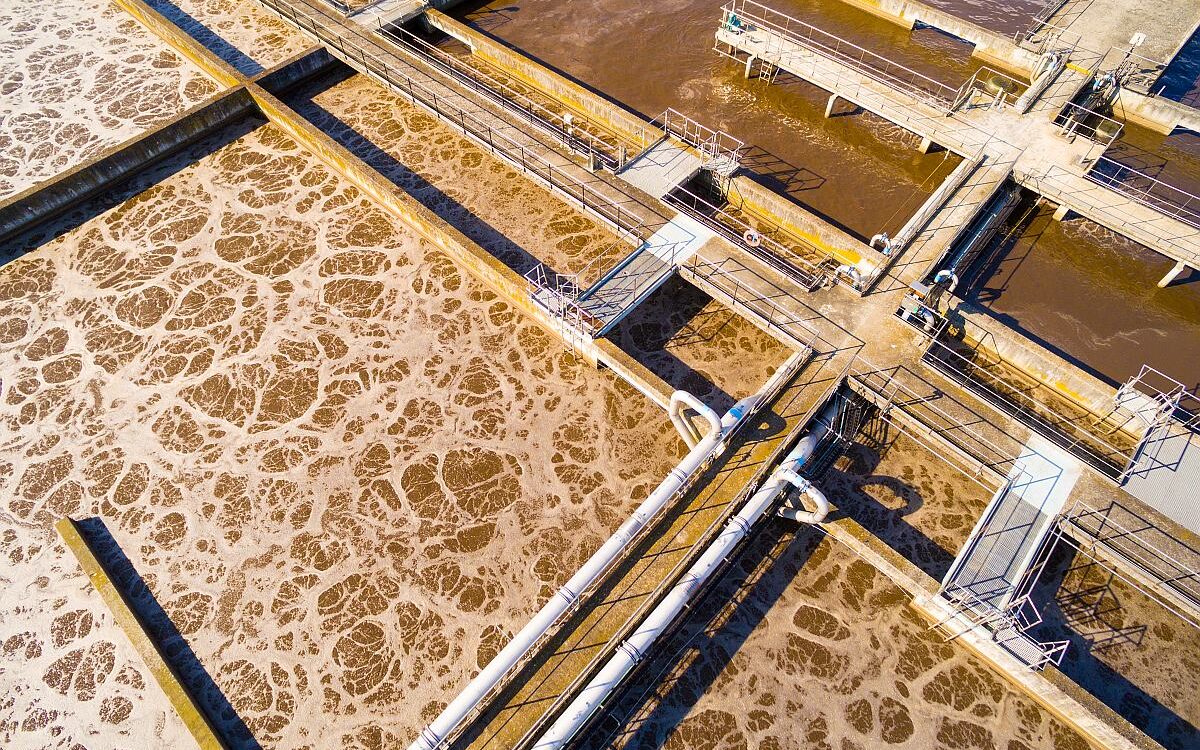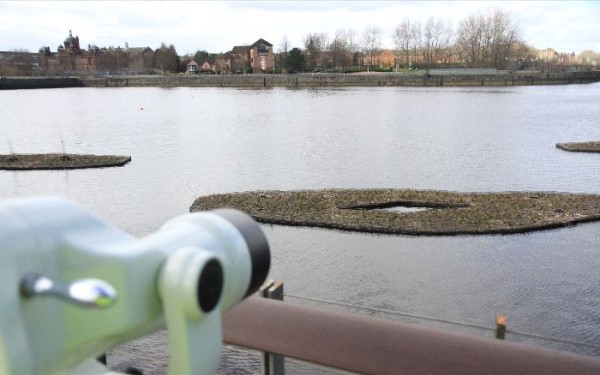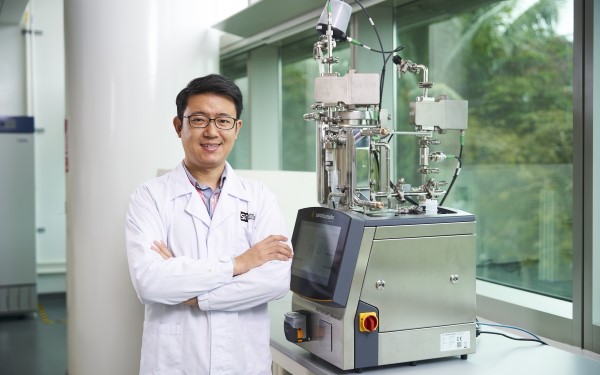January 10, 2023 | The Norwegian company Ocean Oasis is testing the Gaia prototype: a offshore floating desalination plant. It is powered by wave energy to carry out a desalination process of ocean water and pump potable water to coastal users.
The prototype Gaia is tested at the Oceanic Platform of the Canary Islands (PLOCAN) in Las Palmas, Gran Canaria. The launch ceremony for the Gaia prototype took place at the Juan Sebastián Elcano dock in the port of Las Palmas. It was attended by the General Director of Energy of the Government of the Canary Islands, Rosana Melián, the President of the Cabildo de Gran Canaria, Antonio Morales, the director of PLOCAN, José Joaquín Hernández Brito, as well as the Ocean Oasis team and the Norwegian company Grieg Edge on behalf of their investors.
The CTO of Ocean Oasis, Thomas B. Johannessen, explained that the prototype, assembled in the port of Las Palmas, is 7 meters in diameter and 10 meters high and weighs about 100 tons. The device extracts the energy of the waves through the relative movement of two bodies and takes advantage of this energy directly to carry out a desalination process by reverse osmosis without the need to produce electrical energy, thus increasing the efficiency of the process. Gaia will be anchored in the southern area of the PLOCAN test site at Punta de la Mareta.
Desalinated water is necessary for islands
The General Director of Energy, Rosana Melián, highlighted the progress that the islands represent for becoming a testing platform for new technologies aimed at clean energy. It is becoming the center of attention for large companies that wish to delve into these technologies to advance the progress of the energy transition. She pointed out that all the “green” variants that can be incorporated into the energy range that the Canary Islands projects in the future “will make us take a significant leap in the ambitious decarbonization targets that the islands have set for the years 2030 and 2040”.
“Gran Canaria depends on desalinated water for its survival, and it is more important every day because of the drought. But desalination is a process that consumes a lot of energy. If we consider all the processes necessary to obtain water, this represents between 15 and 20% of the total energy consumption of our territory. In 2016, the Cabildo de Gran Canaria launched the “Renovagua” plan with the aim of reducing the use of conventional energy in the production and distribution of water by 40%. Therefore, we receive these types of innovative initiatives with great interest since they can be a very relevant contribution to guarantee the supply of water and accelerate the energy transition”, explained Antonio Morales, president of Cabildo de Gran Canaria.
Future developments
Kristine B. Fredriksen, CEO of Ocean Oasis, informed that Ocean Oasis has established an R&D office and workshop in Las Palmas de Gran Canaria and announced that the company will continue developing activities in the Islands, starting with the Gaia prototype.
Once this stage has been completed, with the testing of the desalination plant at the PLOCAN test site, a second installation will be built. In this phase, the prototype will be scaled with the capacity to produce water for consumption. It will be connected to the water distribution system to help tackle water stress in a sustainable way. This phase is supported by the EU EIC Accelerator.
Desalination growth and offshore potential
Currently, more than 300 million people depend on desalination for their water supply, accounting for about 1% of the total freshwater supply. Climate change and the depletion of traditional resources are increasing the need for desalination, and it is estimated that this will have to double by 2030 to meet the needs of the population.
However, traditional desalination requires large amounts of energy, leading to a large carbon footprint and high cost. From this premise, Ocean Oasis points out that desalination that uses wave energy brings a new dimension and additional opportunities to supply desalinated water without emissions, at a competitive cost, and without the use of valuable land.
The use of offshore wave energy in deep waters also allows a clean capture of water and the discharge of brine in a sustainable way, minimizing the environmental impact.







